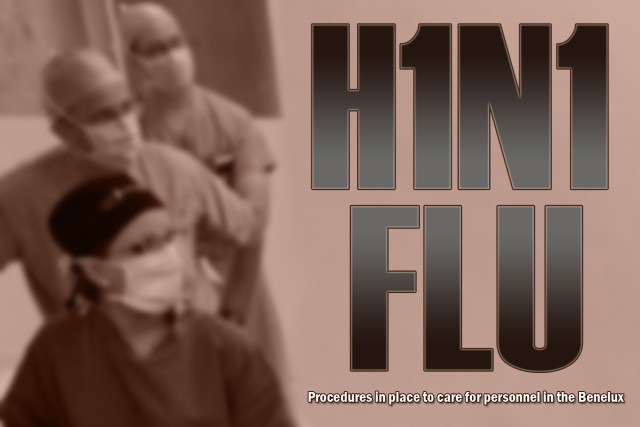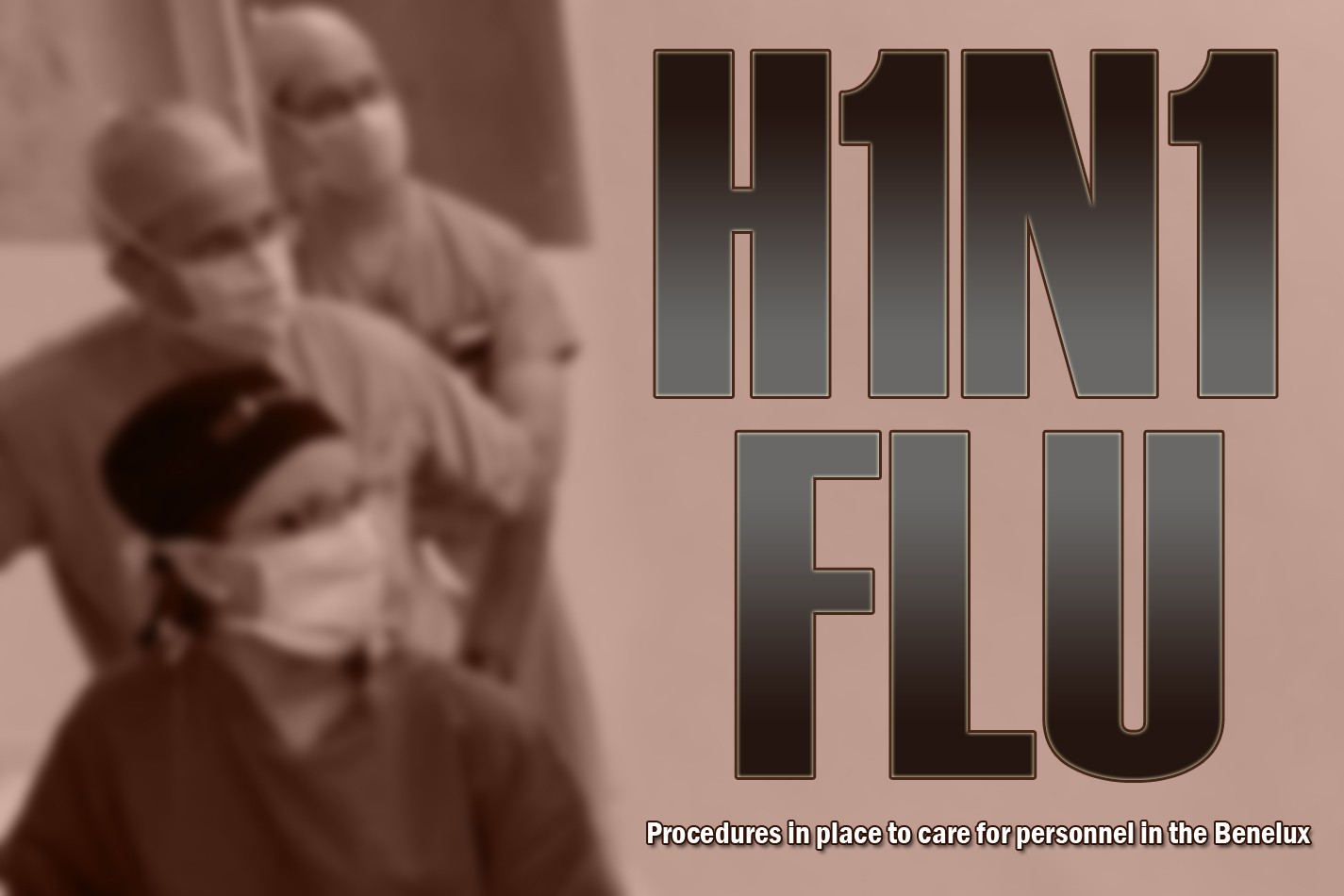
CHIAfE+VRES, Belgium Aca,!" A new strain of the flu has raised health concerns across the globe, and because of a recent USAG Benelux avian flu pandemic exercise, the garrison is better prepared to care for its personnel and families should the current H1N1 flu outbreak spread to Belgium.
Aca,!A"The purpose of the exercise was to execute and validate our plan and to see if it makes sense and is workable,Aca,!A? said Arthur Smith, the plans officer for the USAG Benelux, Directorate of Plans, Training, Mobilization and Security.
During the exercise, the team monitored updates from higher headquarters and medical officials to determine the best courses of action.
Aca,!A"We identified things we did really well, and we are changing areas we can improve on,Aca,!A? said Smith.
He added that one of the most important benefits of the exercise was the forming of relationships between the garrison directorates and subject matter experts from the SHAPE Healthcare Facility and the Belgian Ministry of Health.
Those contacts are the same whether the area faces an avian flu pandemic or an H1N1 flu pandemic. As of April 29, the flu had not reached pandemic stages, but the organizations are already working together to monitor the situation.
Aca,!A"WeAca,!a,,cre now gathering information, exchanging information, keeping our commander updated of human-to-human transfers and informing our higher headquarters of whatAca,!a,,cs happening in the Benelux,Aca,!A? said Smith.
The higher headquarters on the medical and garrison sides are also providing guidance to the Benelux and SHAPE.
SYMPTOMS & CARE
Dr. (Col.) David Schall, U.S. European Command surgeon, said military health officials and clinics have received an advisory that outlines symptoms to look out for when treating patients who report to military treatment facilities with flu-like symptoms. He said health reporting measures are in place that will alert them to any increase in locally reported cases.
According to the U.S. Centers for Disease Control Web site, the symptoms of H1N1 flu in people are expected to be similar to the symptoms of regular human seasonal influenza and include fever, lethargy, lack of appetite and coughing. Some people with the H1N1 flu also have reported runny nose, sore throat, nausea, vomiting and diarrhea.Aca,!A?
Cynthia Bell, the Chievres Garrison Installation Medical Emergency officer noted that individuals at risk for the H1N1 flu outbreak are currently limited to those who have contact with a confirmed case or recent travel to Mexico. At the present time there have been no cases reported in Belgium and very few in Europe.
If individuals are concerned about a recent exposure or symptoms, they should contact their supporting medical treatment facility for further advice.
Aca,!A"Our medical clerks have basic information and, if necessary, they may take your name and information and a nurse will call you back,Aca,!A? said Bell.
She said the purpose of calling instead of walking into the clinic is to protect the population, stating if a person has been exposed to the virus, walking through the clinic risks exposing others and spreading the disease.
When calling the appointment line, the clinic will offer further guidance and possibly ask patients to report to the clinicAca,!a,,cs triage center where they will be tested for the flu with a nasal swab.
Adults with severe symptoms, like difficulty breathing with chest pain, or children with symptoms, such as fast or difficult breathing, signs of dehydration or sluggishness and irritability, should report to their local civilian emergency room. The main hospitals around SHAPE have English-speaking patient liaisons who work closely with the garrison medical facilities.
STAYING HEALTHY
As the virus spreads, and has now been confirmed in Europe by the WHO, the Europe Regional Medical Command said people should be aware of civilian and military travel advisories or restrictions.
Advisories and health tips are being updated regularly on the USAG Benelux H1N1 flu outbreak Web site that can be accessed directly from the homepage www.usagbenelux.eur.army.mil
To lessen the spread of flu, the Europe Regional Medical Command recommends you
Aca,!Ac stay at home when you are sick, in an isolated area.
Aca,!Ac wash your hands often with soap and water.
Aca,!Ac cover your mouth and nose with a tissue or the inner part of your elbow (not your hand) when coughing or sneezing.
Aca,!Ac avoid touching your eyes, nose or mouth.
Aca,!Ac seek medical care, if you are ill.
The Europe Regional Medical Command said people who are cared for at home should:
Aca,!Ac stay home for 7 days after the start of illness and fever is gone.
Aca,!Ac get plenty of rest and drink clear fluids (such as water, broth, sports drinks, electrolyte beverages for infants) to keep from being dehydrated.
Aca,!Ac cover coughs and sneezes. Clean hands with soap and water or an alcohol-based hand rub often and especially after using tissues and after coughing or sneezing into hands.
Aca,!Ac avoid close contact with others Aca,!" do not go to work or school while ill.
Aca,!Ac be watchful for emergency warning signs that might indicate you need to seek medical attention; seek medical attention right away if the sick person at home: has difficulty breathing or chest pain, has purple or blue discoloration of the lips, is vomiting and unable to keep liquids down, has signs of dehydration such as dizziness when standing, absence of urination, or in infants, a lack of tears when they cry, has seizures (for example, uncontrolled convulsions) or is less responsive than normal or becomes confused.
Aca,!A"We need to take this seriously, but you donAca,!a,,ct need to panic. The vast majority of people in Mexico are recovering, just as with a normal fluAca,!A? said Bell.
The USAG Benelux is constantly monitoring the epidemic closely and is adjusting its procedures according to policies in place and new guidance received from higher commands.
As new information becomes available, personnel will be notified via email or from their supervisors. The Benelux Web site will also continue to provide updated information along with important links to the European Command, CDC, WHO and other relevant sites with the most current, up to date information available.

Social Sharing